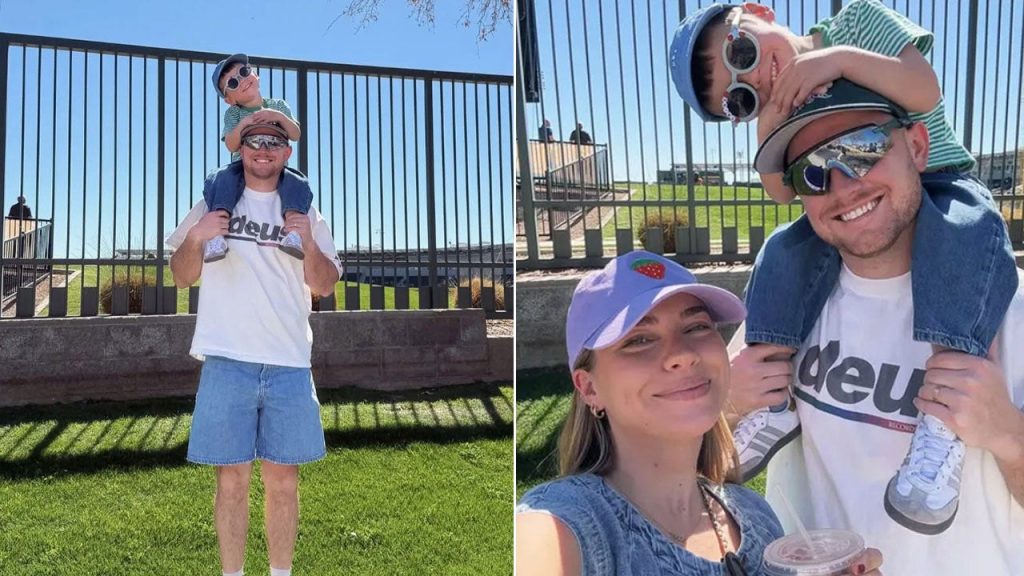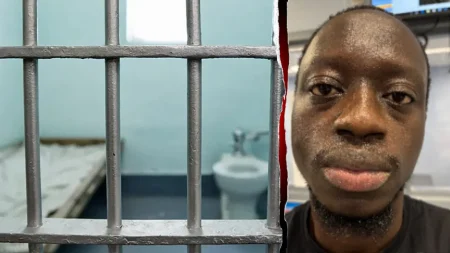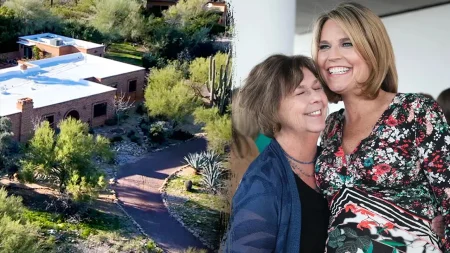The Devastating Loss of a Child: A Mother’s First Words After Tragedy
In a heart-wrenching statement released Thursday, 26-year-old TikTok creator Emilie Kiser finally broke her silence regarding the tragic death of her 3-year-old son, Trigg, who drowned in the family pool at their Arizona home three months ago. With over 4 million followers on TikTok, Kiser had built her identity as a “mom influencer,” making this tragedy all the more public and scrutinized. In her emotional post, she described her grief as “impossible to put into words,” offering her followers the first glimpse into how her family has been coping with this unimaginable loss. Calling Trigg both her “baby and best friend,” Kiser’s statement reflected the deep pain of a mother facing life’s most unbearable experience while acknowledging a harsh reality: “One of the hardest lessons I carry is that a permanent pool fence could have saved his life, and it is something I will never overlook again.”
The details surrounding Trigg’s death paint a heartbreaking picture of how quickly tragedy can strike. On May 12, while playing in the backyard of the family’s Chandler home, Trigg accidentally tripped on an inflatable chair and fell into the pool. According to police reports and confirmed by surveillance footage, the fall was entirely accidental. Emilie was not home during the incident; her husband Brady was caring for both Trigg and their newborn son at the time. Brady later told police he had been momentarily distracted by the baby inside when Trigg fell into the water. The boy remained submerged for several crucial minutes before being discovered. Despite first responders performing CPR and rushing him to the hospital, where he remained on life support for nearly a week, Trigg passed away on May 18, six days after the accident.
The aftermath of this tragedy has involved not only overwhelming grief but also legal complications and public scrutiny. The Chandler Police Department had recommended a Class 4 felony charge of child abuse against Brady Kiser, but prosecutors ultimately determined that the evidence did not meet the threshold for a “reasonable likelihood of conviction.” Meanwhile, Emilie has filed a lawsuit seeking to block the release of investigative records related to Trigg’s death, indicating the family’s desire for privacy during this devastating time. This tension between public interest and private grief is something the Kisers now face as they navigate their loss in the spotlight of social media fame, where millions have followed their family life.
In her statement, Emilie acknowledged how this tragedy has fundamentally changed her perspective on sharing family moments online. “I now have seen through this tragedy how relationships online lack boundaries, especially in protecting children’s privacy,” she wrote. “Moving forward, I will be establishing more boundaries with what I share online.” This reflection speaks to a growing conversation about the ethics of family content creation and “sharenting,” where children’s lives are documented for public consumption before they can consent. For Kiser, the tragedy has clearly prompted a reevaluation of how much of her family’s life should be accessible to her millions of followers, suggesting that her approach to content creation will shift significantly as she moves forward.
Despite the overwhelming grief, Kiser expressed profound gratitude for the support system that has surrounded her family during this time. She thanked her family members for their “unconditional love” and acknowledged how their presence has been essential to the family’s ability to cope with their loss. She also extended appreciation to her audience and supporters, writing: “I cannot thank you enough for the kind messages I have received, for the outpouring of love for our family, and for the support you have brought to me in these extremely tough times.” This acknowledgment highlights how, even in the midst of tragedy, community support—both online and offline—can provide crucial comfort to those experiencing profound grief.
Trigg’s death represents not just a personal tragedy for the Kiser family but also underscores a broader public health concern in Arizona, where child drownings remain a leading cause of accidental death for children under five. This statistic gives Emilie’s words about a pool fence potentially saving her son’s life even greater weight, as her platform allows this preventative message to reach millions. As she continues to process her grief, Kiser concluded her statement with a sentiment that will resonate with anyone who has experienced profound loss: “The only way through grief is to keep going minute by minute, hour by hour, day by day.” These words reflect both the insurmountable nature of losing a child and the necessity of somehow finding a path forward, even when that path seems impossible to walk.











